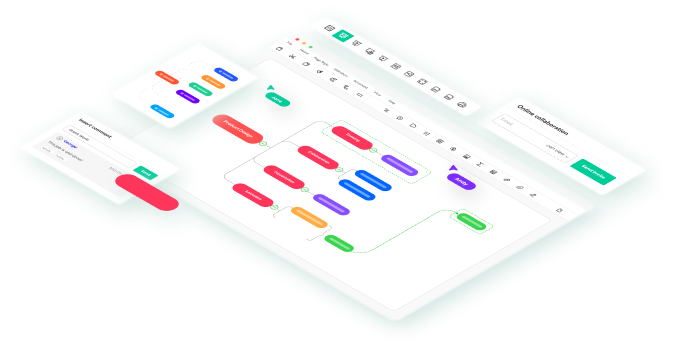Chemistry often feels like a complex puzzle of atoms, reactions, and formulas—but it doesn’t have to be!
Discover smart, science-backed ways to study chemistry efficiently, boost your understanding, and turn confusing concepts into crystal-clear knowledge that sticks.
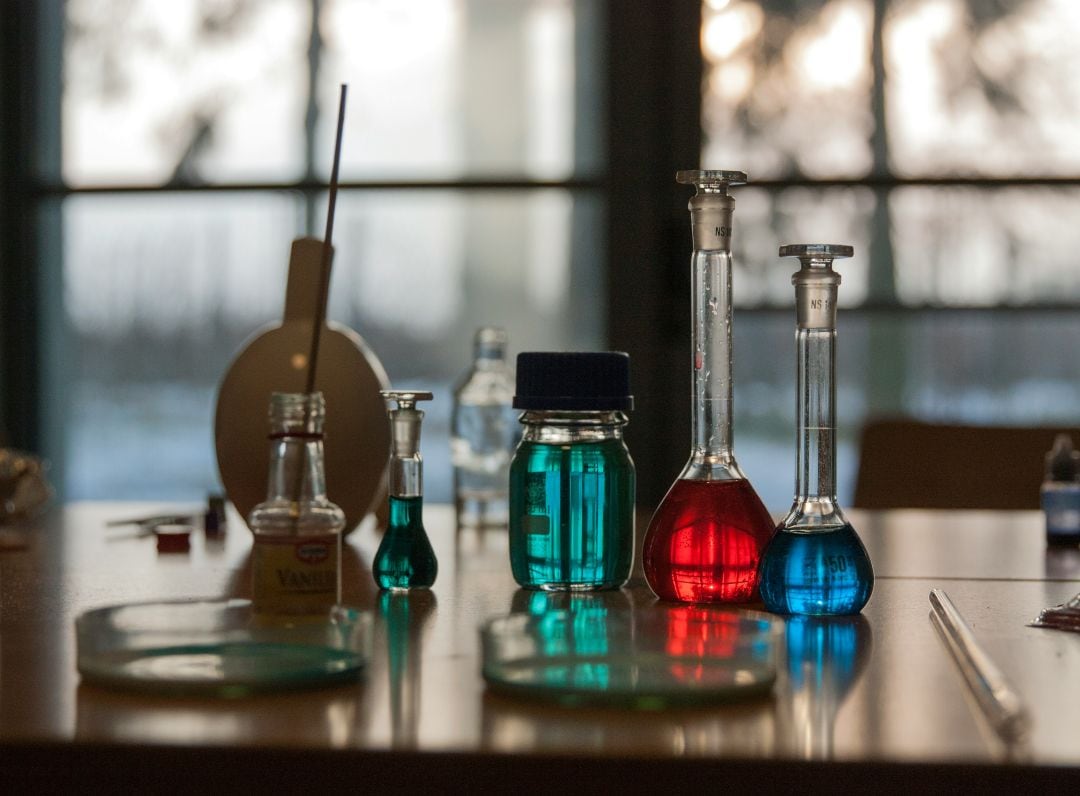
In this article
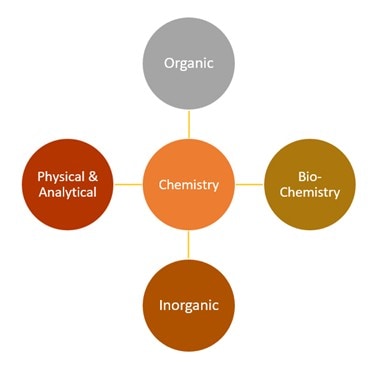
Why Chemistry Feels Hard (and How You Can Tame it)
Chemistry often feels like juggling symbols, reactions, and abstract concepts. Many students struggle because they try to memorize formulas without understanding the underlying ideas. But chemistry is more than equations—it’s the story of how matter behaves and transforms.
With the right strategies, you can grasp chemical concepts, balance reactions, and visualize molecular behavior. This avoids rote memorization and turns chemistry into a logical, fascinating subject.
This guide will teach you how to study chemistry effectively in 2025 by offering smart techniques, top books, real student insights, mind mapping strategies, and an FAQ to ease your learning journey.
How To Study Chemistry Effectively
Below are six ways to study chemistry effectively.
Don’t Miss Your Labs
Laboratories turn theory into reality. Without lab experience, your understanding remains shallow. Through experiments, you observe colors, precipitates, gas formation, and more, which anchors concepts in your mind.
Labs help you connect chemical equations to real phenomena: gas evolution, pH changes, thermodynamics, etc. The more time you spend handling glassware, measuring reagents, and recording observations, the deeper your intuition becomes.
Tips to maximize lab time:
- Prepare before entering the lab; read procedures and predict outcomes.
- Keep a clean, organized notebook with sketches, observations, and reflections.
- Ask instructors why certain reagents behave the way they do.
- Repeat key procedures (e.g., titrations and calorimetry) to build muscle memory.
Many chemistry educators say lab attendance and practice separate average students from outstanding ones.
Focus on Understanding Rather Than Memorizing
When students memorize formulas unquestioningly, they often falter when questions deviate slightly. Understanding gives you flexibility to adapt and reason. Learn the “why” behind reactions, not just the pattern.
Break down reaction mechanisms: what moves where, why atoms rearrange, and how energy flows. Relate new topics to prior knowledge (e.g., linking acid–base to equilibrium).
How to build understanding:
- Draw reaction steps and annotate electron flow.
- Use analogies (e.g., “electron movement is like water flow”).
- Ask yourself questions: Why does the equilibrium shift? Where does heat come from?
- Teach a peer — explaining builds clarity.
💡 According to students, visualizing each step vastly reduced mistakes on exams.
Avoid Studying When You’re Sleepy
Chemical learning demands focus. When tired, your brain can’t process electron shifts or multi-step reactions properly. Mistakes rise, retention falls.
Schedule chemistry study during alert hours, such as early morning or right after a break. If fatigue hits, take short breaks or switch to lighter tasks.
Avoid cramming formula tables late at night so you won’t forget them by morning.
Healthy study habits:
- Use the Pomodoro method (25 min study, five min rest).
- Sleep 7–8 hours. Many molecular processes consolidate memory during sleep.
- Hydrate and snack. Glucose fuels brain activity.
- Switch between conceptual and numerical chemistry to refresh attention.
Mind Mapping Is the Key
Chemistry is full of branching topics: thermodynamics, kinetics, electrochemistry, organic mechanisms, etc. Mind maps help you connect these topics visually.
A mind map lets you place “Chemistry” at the center, then branch out to major domains, then further to key subtopics. When you refer to the map, you see how everything links.
Mind maps serve as condensed visual summaries you revisit frequently before tests.
Tip: Use EdrawMind for Chemistry Maps
EdrawMind amplifies this process:
- Auto-generate branches from text or class notes using AI.
- Add icons (flask, energy, arrows) to denote reaction classes.
- Export your map as a revision sheet or share it with classmates.
- Adjust layouts (radial, tree) to suit your study style.
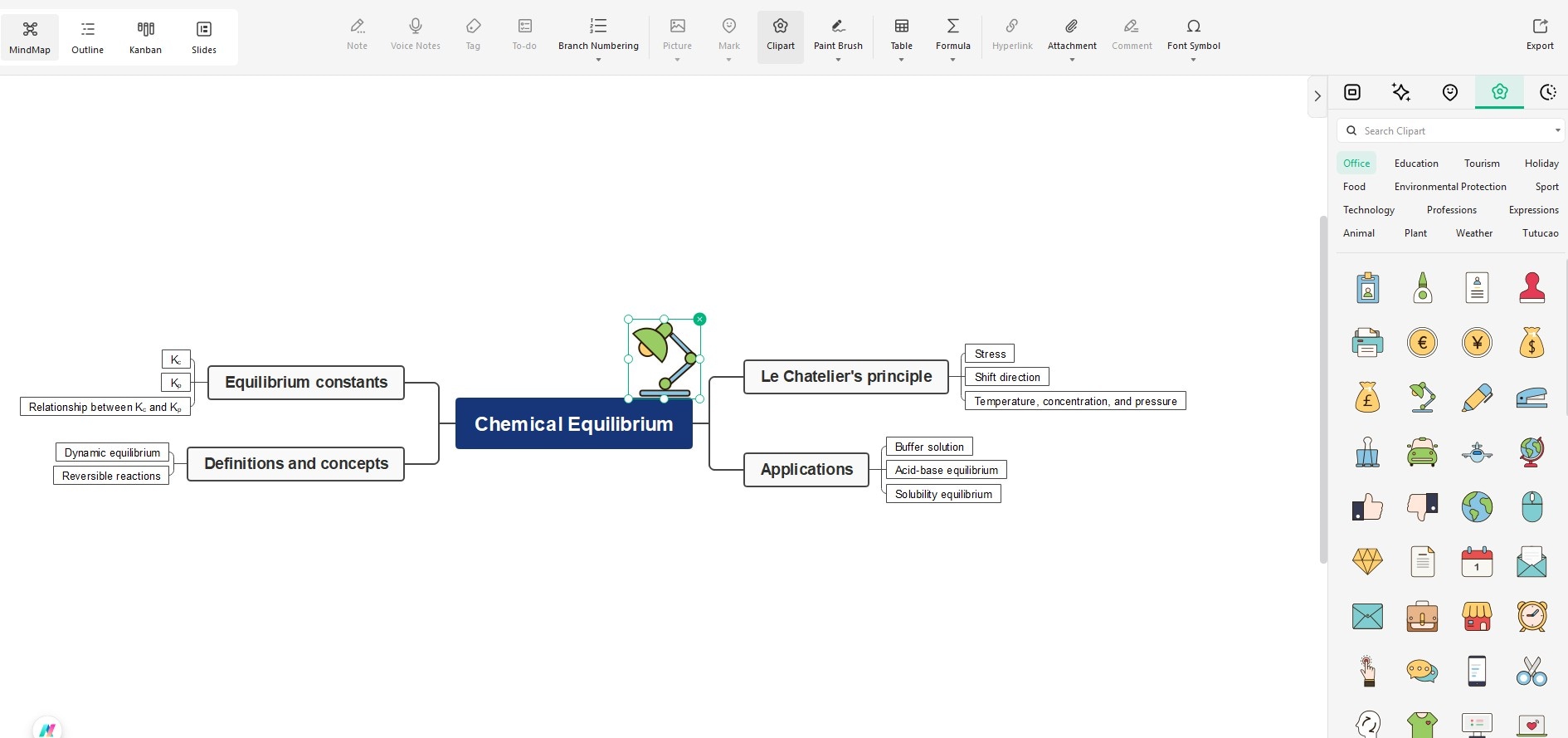
With EdrawMind, you can:
- Generate AI-powered mind maps from text or topics.
- Add icons, links, and images for deeper understanding.
- Collaborate with classmates in real time.
- Export your maps as PDF study notes or presentations.
Do Your Homework (and Do It Actively!)
Homework is your rehearsal stage. Passive copying won’t help. Instead, engage: solve problems, predict outcomes, challenge assumptions.
Approach each question by pausing: What concept applies? What is known vs unknown? How will I get there?
Active homework methods:
- Before checking solutions, try multiple routes.
- Mark tricky parts and revisit them later.
- After solving, summarize the reasoning in two sentences.
- Group homework sessions — compare approaches with peers.
Students who turn homework into small investigations often outperform those who fulfill assignments.
Practice Regularly With Variation
Chemistry doesn’t “stick” if only repeated identically. Practice diverse problem types: redox, buffers, rate equations, and mechanism variations.
Varied practice prepares you for surprises in tests. It also strengthens deeper learning by forcing you to adapt your thinking.
Patterns of good practice:
- Use mixed-problem sets (not block by topic).
- Timed quizzes to simulate exam pressure.
- Flashcards for constants, ion charges, and functional groups.
- Conceptual questions and application-based tasks (e.g., “What if …?”).
Reddit users often report that alternating problem types (organic, physical, and analytical) keeps the brain sharp and reduces boredom.
Tips To Study Chemistry More Efficiently
Efficiency in chemistry comes from combining structure, reflection, and smart strategy. Below are student-tested techniques and insights from chemistry forums.
Case Study 1 – r/chemhelp thread
One user said: “When I rewrote all mechanisms into a single-page map, I reduced my error rate by half.”
Case Study 2 – Student Room UK
A student improved exam scores by alternating topics daily (thermodynamics one day, kinetics next). It prevented fatigue and enhanced retention.
Proven and tested techniques:
- Use spaced repetition for formula review.
- Summarize each lecture in < 200 words.
- Create a “cheat sheet” map before each weekly quiz.
- Solve problems backward (start from the answer).
- Use molecular model kits or simulation apps to visualize.
Combining active, spaced, and varied practice strengthens memory and ensures you can apply chemistry in flexible ways.
Top Reference Books for Chemistry Students
Good textbooks give depth, examples, and exercises. Here are trusted picks:
| Book Title | Author(s) | Why it’s helpful |
| Chemistry: The Central Science | H. Eugene LeMay Jr., Bruce E. Bursten, Theodore L. Brown, Patrick Woodward, Catherine J. Murphy, Matthew Stoltzfus | Excellent balance of theory, worked problems, and visuals. |
| Organic Chemistry as a Second Language | David R. Klein | Focused on understanding organic mechanisms — ideal for beginners. |
| Physical Chemistry for the Life Sciences | Peter Atkins & Julio De Paula | Connects thermodynamics and kinetics with life science examples. |
| General Chemistry | McMurry & Fay | Clear explanations, solved problems, and practice questions. |
Use these books alongside your course materials to deepen understanding, practice more, and see different explanatory styles.
How To Boost Efficiency With a Mind Map
⚗️ Chemistry can feel abstract, with equations, reactions, and theories that easily overwhelm. Mind maps give these concepts structure by connecting topics visually, helping you understand relationships between formulas, processes, and results.
They turn memorization into meaningful learning, allowing students to see how chemical reactions, periodic trends, and equations work together. This makes revision faster and problem-solving easier.
Tips to use mind maps in chemistry:
- Map chemical reactions with arrows showing reactants and products.
- Cluster bond types, molecular structures, and atomic models.
- Use icons to mark acid-base or oxidation-reduction reactions.
- Add sample equations beside the main branches.
- Highlight organic vs. inorganic sections with colors.
Why Use EdrawMind
Wondershare EdrawMind lets chemistry learners organize reactions, equations, and theories visually for stronger understanding and faster recall. With its AI-assisted templates, you can create dynamic, colorful maps that make chemistry simpler, smarter, and more enjoyable to learn.
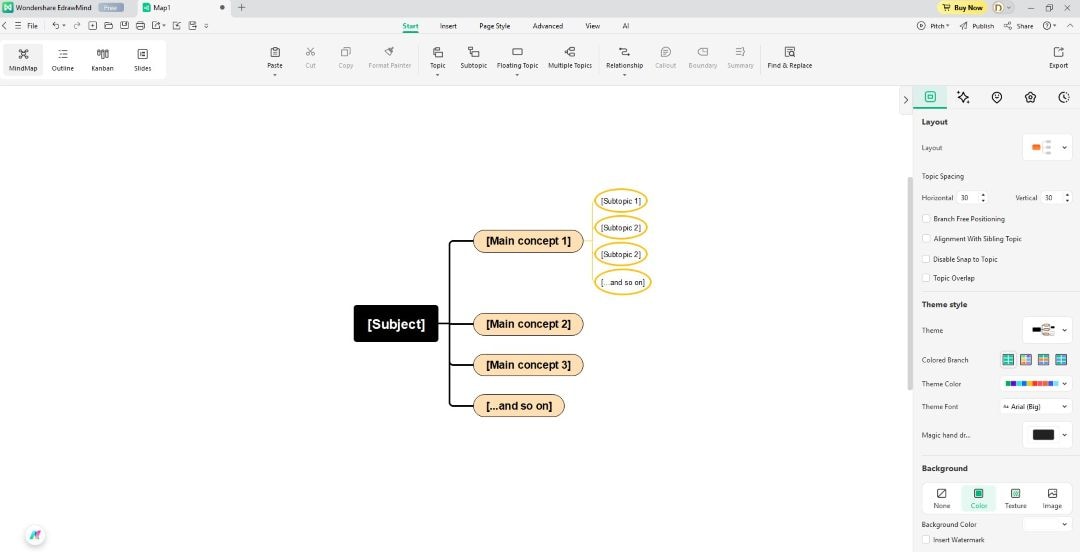
Chemistry doesn’t have to be intimidating. With the strategies above—attending labs, focusing on understanding, using mind maps, practicing actively—you can turn it into a manageable and exciting subject.
Study smarter, not harder. Use tools like EdrawMind, refer to strong textbooks, engage in varied practice, and deepen your curiosity. Day by day, reaction by reaction, you’ll become a chemistry master.
FAQs
-
1. How many hours should I study chemistry daily?
Start with 2–4 focused hours. Short, consistent sessions are better than marathon cramming. -
2. What is more important, memorization or understanding?
Understanding. Once you understand why reactions behave, memorization becomes easier and more flexible. -
3. Should I focus more on organic, physical, or inorganic chemistry?
All are important. Focus more on your course’s balance, but allocate time to weak areas. -
4. Can simulation apps help with learning chemistry?
Yes. Apps like ChemSketch, PhET, or molecular visualizers help you see structure, reactions, and mechanisms. -
5. How often should I review past topics?
Weekly reviews are ideal. Use your mind maps and quizzes to revisit older chapters—this strengthens long-term memory.



